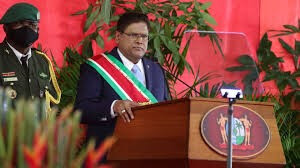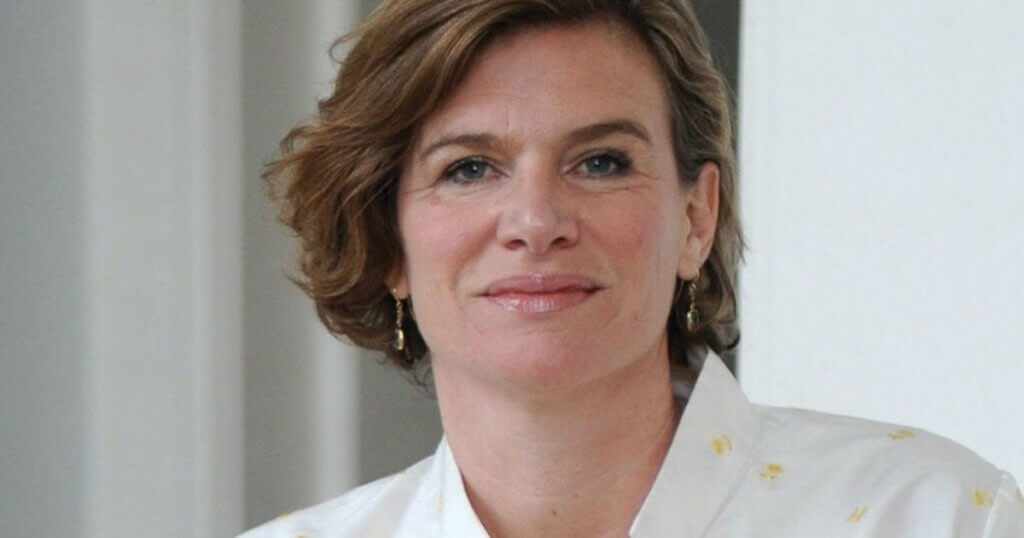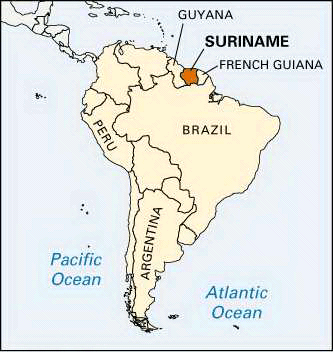Reflections about our Common Future

An Eyes on Suriname Special
Eyesonsuriname listens to scientist, media- and theaterproducers, authors, and philosophers about important contemporary personal and social questions.
The Italian-American economist Mariana Mazzucato thinks and reflects over the question how to adjust our capitalist system.

Anton Foek
Amsterdam, December 12, 2021–We ( sic ) have really big problems: lack of sense of unity, corruption, climate change, digital adaption and our common future, hunger and inequality.
Can these be solved by sustainable entrepreneurship? Or should our system of current capitalism fundamentally change? We are not only dealing with climate change, but with a climate emergency, a climate crisis. We can’t solve them if we don’t recognize something else: that we are dealing with a crisis in our form of capitalism.
Capitalism has to change if we want to tackle the climate crisis.

You know that Greta Thunberg, the 16-year-old climate activist, always says that if we took climate seriously, it would feel like our house is on fire. Then you’re not going to discuss how to get out. Then you go outside. You grab your kids and your pictures and you leave the house. How could we shape capitalism with that same sense of necessity and crisis?” The climate crisis, as well as the design of our country, must force us to think differently about growth, but also about our current system. Because that is broken. It is a crisis, a state of emergency. The house is on fire.” Given the current problems, you can certainly speak of a crisis. Take the organization of the financial sector. Most money flows back into the financial sector, in other words, back in the form of financial services, such as insurance and real estate. The English acronym for this is fire.
Our industrial sector is reinvesting profits less and less in research and development, in employee training and in production capacity. They only look at the price of stocks.
For example, they often buy back their own shares to increase the prices of shares and options, and therefore the payments to the board of directors.

Through 30 years of ideological thinking, the government and politicians have become convinced that the only thing you can do is wait for a crisis to come, and then clean up the mess. Among economists we call this ‘correcting the mistakes in the market’. So you have to wait for the market to screw something up first. Whether that is a financial crisis, or insufficient investment in research, or in the prevention of environmental pollution. You have to wait. To restore, to enable, to remove risks. So powerless and boring. All words for government policy are boring. Even the Central Banks, which saved capitalism, are called ‘lenders of last resort’. You fall asleep thinking about what the government is doing. Just imagine what that would look like. Keep the climate crisis in mind and consider what it means to fundamentally reshape capitalism in terms of financing, public sector activities and corporate leadership. We don’t have to reinvent it all over again.

Two years ago, the world celebrated the fiftieth anniversary of the moon landing. For that you needed not only public activity, from NASA, but also a lot of investment from the private sector. It started with a challenge and there are plenty of those these days. Those are the sustainability goals. At the time, it was the space race when the Sputnik appeared. John F. Kennedy turned that challenge into a very concrete mission. Back and forth to the moon in one generation. He was so inspiring that students wanted to study physics again.
A NASA janitor also felt concerned about a man being put on the moon. It took a lot of activity, in all sorts of areas, not just at NASA. It was about investments, innovation, profit, in areas such as food, materials, textiles. The entire software industry was born from that mission. And it required the public sector, the government, to think about its own behavior, about public-private partnerships.

The government as a buyer. And the government buys a lot: hospital beds, desks, all the material for roads and infrastructure. This made bottom-up experiments possible to meet that public goal. Three to four hundred projects, problems that had to be solved. Many failed, but there was the will to experiment, to accept uncertainty in the public sector, to achieve a goal and to deploy procurement policies, subsidies and loans with the private sector.
Not because you need to appear business-friendly or to support certain sectors or a certain type of business, such as startups or small and medium-sized businesses. But for bottom-up experimentation, learning through experience, taking risks to achieve a common goal.

Imagine what it’s like to solve our biggest problems that way. Whether it’s about inequality, hunger or climate, and turning it into inspiring missions. This requires commitment from various sectors: public and private. From different disciplines. It’s not just about science subjects. It is also about humanities, poetry, and creative professions. Innovation in the philosophy to make these missions as inspiring as possible.

And to make policy less of a form of giving away money, but more of a way of achieving symbiotic, reciprocal, non-parasitic public-private partnership. Why do I use the word parasitic? Think about how much money is currently going into things like health innovation from all kinds of public funds. In the US, which claims to be a market economy, a lot of public money is invested in the development of health innovations. Also called “life sciences”. $39 billion was spent last year by the National Institutes of Health to help the pharmaceutical industry make new drugs. The pricing mechanism for those medicines does not take into account that taxpayer contribution. That’s not the public-private partnership that I envision as we reshape capitalism for climate. In space, there’s a lot of public money. From NASA, ESA and the Chinese space program. How can we see space as a new economy where no public money is given to entrepreneurs like Elon Musk and others to flirt in space, but if we seriously think about what such a partnership would look like? Where the large amounts of public money that all those entrepreneurs can surf brilliantly on is repaid from those large private profits that are made.

If we don’t think about those details about those government policy instruments, about what we envision in a social contract to socialize not only the risks, but also the rewards, we are missing out on a huge opportunity. We now have the opportunity to reshape capitalism in many different ways. The climate crisis, like the monetary and financial situation in Suriname, must force us to think differently about growth. But also about our current system. Because that’s broken.
It is a crisis, a state of emergency.
Our beautiful house, our home where we belong, is on fire.
Anton JieSamFoek
12 dec 2021









